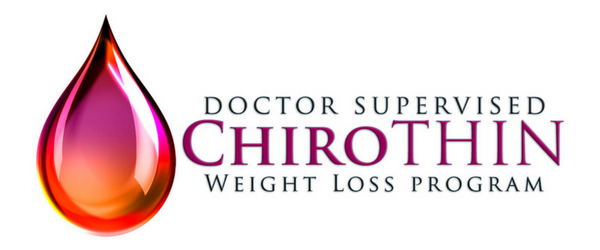
If there is one thing Americans can agree on, it’s the importance of healthy eating. According to one survey, up to 93% of people in the US say they strive to eat healthily. Are you one of them?
One of the main hurdles to understanding the best things to and not put in your body is navigating all the conflicting advice you may see online or hear in person from friends, family, and coworkers.
We want to help you sort through all this information to find the best, most relevant advice for you. That is why we created this guide to 7 healthy eating habits you can start doing today. Read on to learn more.
1. Cut Less Out
Diet culture has a long history of demonizing food groups. First, it was fats; now it’s carbohydrates. But contrary to what diet fads of days past have taught us, all food groups are essential for healthy and sustainable weight loss.
For example, healthy fats provide the body with energy. These essential macronutrients also play a role in the production of hormones, vitamin absorption, cell growth, and many more bodily processes.
Today’s trendy diets may tell you that carbs are a major no-no. But did you know these macronutrients are the body’s and the brain’s preferred source of energy? They are crucial for regulating body temperature, vital function, and even food digestion.
Protein is the last of the three major macronutrients. Fortunately, diet trends have mostly let this macro be. And that’s a good thing, considering that protein is critical for cell function and healthy muscles and bones.
2. Add More In
Instead of focusing on cutting out foods, dieticians typically recommend adding a wider variety of foods into your diet. If you want to lose weight, focus on incorporating more fiber-rich whole foods.
Whole foods are non- or minimally processed and include fruits and vegetables, whole grains, nuts and seeds, beans, meats, fish, and eggs. Frozen or canned produce and whole wheat flour are also types of whole foods to consider adding to your diet.
Other foods to consider adding to your diet are those rich in micronutrients, including vitamins and minerals. Colorful fruits and veggies are an excellent source of micronutrients, especially when they are fresh and in season.
If you love healthy food trends, we recommend trying the current craze of switching out animal for plant-based proteins. This strategy is another smart way to diversify your diet and get more beneficial nutrients.
3. Avoid Restrictive Diets
Being at a caloric deficit is the only way to lose weight. A caloric deficit means that you burn more calories in a day via your resting metabolism, physical activity, and exercise than you consume. However, you should be able to enjoy your food even while maintaining the defecit. Choose diets that allow for a wide variety of nutrient dense and whole foods.
4. Mind Processed Foods
It is unhelpful to demonize any foods, not just the healthy ones like fats, carbs, protein, and fiber. Shaming yourself for consuming certain foods can lead you to develop an unhealthy relationship with eating.
At the same time, be conscious of the foods that are best when eaten in moderation. An example is highly processed foods. Here are some examples of processed foods to enjoy in moderation:
- Fast food
- Chips
- Candy
- Packaged snacks
- Cereal
- Processed meats
- Sodas and other sweetened beverages
As long as you prioritize whole and minimally processed foods, a healthy diet can still include your favorite treats and snacks when you pair them with restraint.
5. Reduce Saturated Fats
Another food group to consume in moderation is saturated fats and trans fats. Trans fats are the most common type of fat found in fast food and other highly processed items. Saturated fats are primarily found in butter, lard, cheese, and certain meats.
Your diet should primarily consist of healthy fats, also known as unsaturated fats. There are two types of unsaturated fats: monounsaturated fats and polyunsaturated fats.
A healthy diet should include unsaturated fat. However, limiting saturated fats to no more than 20 to 30 grams per day can help you maintain your weight and improve your cardiovascular health.
6. Reduce Added Sugars
Added sugars are another ingredient to limit, but you don’t have to avoid it altogether. Added sugars come in sweeteners like honey and brown sugar, as well as beverages and foods that contain them.
Diets high in added sugars can increase the risk of obesity and other chronic conditions like diabetes. They can even result in malnutrition if you eat a diet high in sugar but low in macro and micronutrients.
Craving something healthy and sweet? Reach for fruit, as the natural sugars combined with fiber will keep you from experiencing a glucose spike. Plus, you will consume beneficial nutrients while curbing your sweet tooth.
7. Stop Skipping Breakfast
Breakfast is known as the most important meal of the day for a reason. Eating a hearty breakfast can start you off right, keeping your appetite regulated and your brain and body fueled.
The best breakfast is high in fiber and protein, with a small amount of healthy fats for optimal nutrient absorption. Avoid eating sugary breakfasts, though, as they can lead to sugar spikes and cravings throughout the day.
These Are 7 Healthy Eating Habits to Start Now
These 7 healthy eating habits will transform your relationship with food. They are also so simple to implement that you can start right now.
And if you still need help finding the right eating habits for your weight loss goals, a ChiroThin doctor can help.
Are you ready to get started on the path to a healthier you? Click here to find a ChiroThin doctor in your area.
